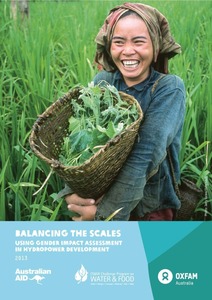Location
Our vision, values & goals
We believe that poverty is unjustifiable and preventable, that the present state of inequality and injustice must be challenged, and that with the right help, poor people can change their lives for the better.
Our vision
Oxfam’s vision is a just world without poverty. We envisage a world in which people can influence decisions that affect their lives, enjoy their rights, and assume their responsibilities—a world in which everyone is valued and treated equally.
Our purpose
Oxfam strives to help create lasting solutions to the injustice of poverty. We are part of a global movement for change, one that empowers people to create a future that is secure, just, and free from poverty.
Read our Purpose and Beliefs in full.
Our goals
We have one main goal: to bring about positive change in the lives of people living in poverty.
To achieve this goal, we have established our central commitments and twelve goals that are outlined in our2014 —2019 Strategic Plan.
To achieve our commitment to reconciliation between Aboriginal and Torres Strait Islander peoples and other Australians, we’ve developed a detailed Reconciliation Action Plan in consultation with Reconciliation Australia and our Aboriginal and Torres Strait Islander Peoples’ Program staff.
Members:
Resources
Displaying 1 - 5 of 11A Guide to Gender Impact Assessment for the Extractive Industries
This guide provides information for companies in the mining, oil and gas sector - and their consultants - on how to undertake a gender impact assessment to gain and maintain a “social licence to operate” with impacted communities and avoid conflict and costly shut-downs. It
• describes some important principles and approaches that should underpin a gender impact assessment,
• provides a framework for companies to identify, understand and respond to the gender impacts of an extractive industry project, and
• outlines some key concepts, definitions and case studies.
A Guide to Gender Impact Assessment for the Extractive Industries
This guide provides information for companies in the mining, oil and gas sector - and their consultants - on how to undertake a gender impact assessment to gain and maintain a “social licence to operate” with impacted communities and avoid conflict and costly shut-downs. It
• describes some important principles and approaches that should underpin a gender impact assessment,
• provides a framework for companies to identify, understand and respond to the gender impacts of an extractive industry project, and
• outlines some key concepts, definitions and case studies.
Still banking on land grabs: Australia's four big banks and land grabs
This report reveals new links between Australia's big four banks and three land grabbing case studies previously documented in Oxfam's 2014 report Banking on Shaky Ground. The new report also provides evidence that, even after Oxfam first alerted the banks to their exposure to land grabs, all four banks committed tens of millions of dollars in loan facilities to the agribusiness firm Cargill. A former subsidiary of Cargill acquired large tracts of land in Colombia’s Altillanura region that had been set aside by law for family farming.
Strengthening Community Understanding of Free, Prior and Informed Consent - A Trainer's Manual
This trainer’s manual aims to help strengthen and build the capacity of community activists, community based organisations and educators to support communities to understand Free, Prior and Informed Consent (FPIC).
The objectives are: • to enable communities to demand meaningful participation in natural resource management decision-making;
• to make sure that internal community decision-making processes include all members of the community;
• to ensure that projects only go ahead if the consent of the affected community is given.
Balancing the Scales: Using Gender Impact Assessment in Hydropower Development
Balancing the Scales in a manual designed to help planners and decision makers identify, understand, predict and respond to gender differences, opportunities and needs. The guide includes questions for staff involved in developing and managing projects and plans. The manual also helps companies consider their corporate practices beyond the project level, especially their operational policies and their project management frameworks through a lens of advancing gender equality and women’s rights.




